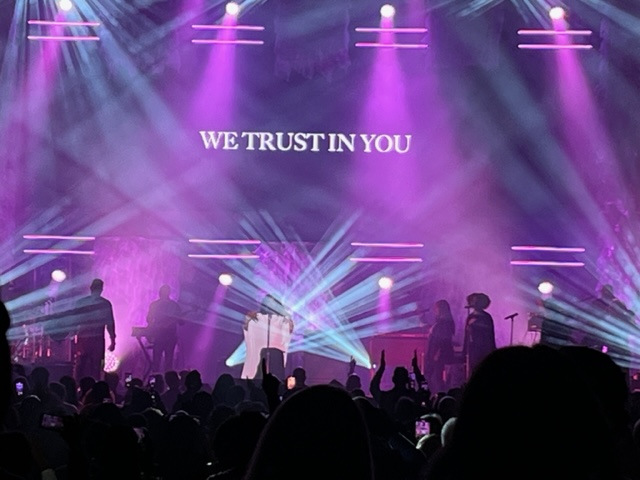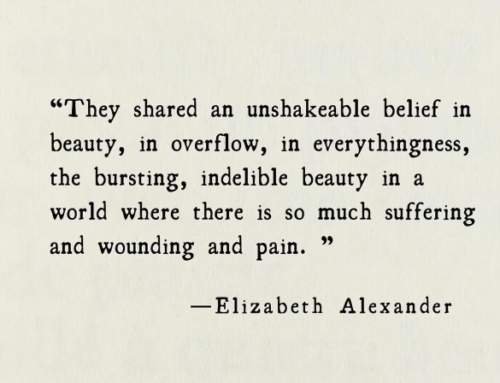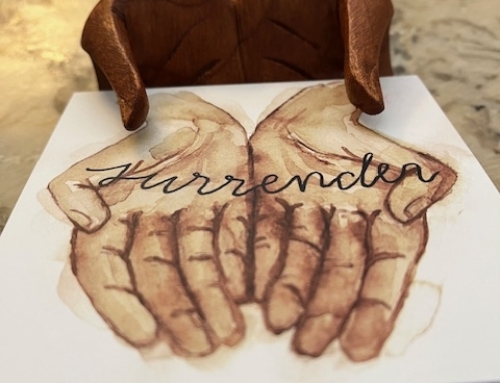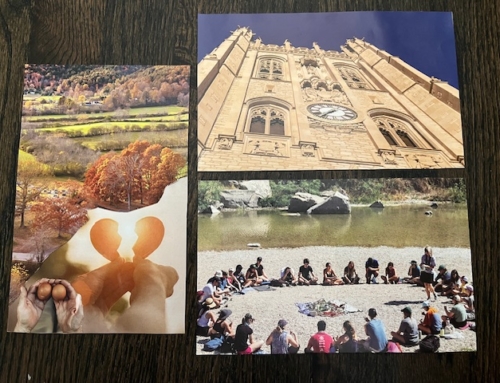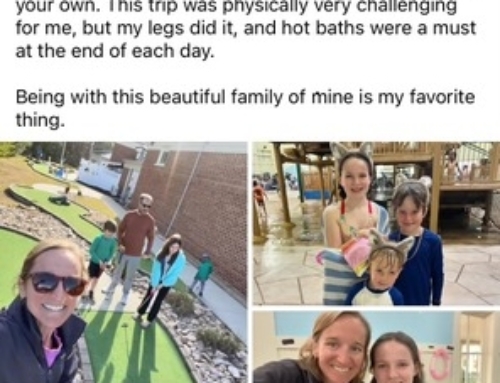
Good morning…
A dear friend in our Friday morning group keeps us closely connected to the progress of her daughter-in-law, 37-year-old Elizabeth, who is battling advanced colon cancer. Periodically, Elizabeth writes candid blog posts to track her brave journey. This week, she shared important wisdom from a book she just finished reading.
******
Excerpt from Elizabeth’s 10/19 PostHope entry
I just finished a wonderful book by Dr. John Cox called Setting Parents Free. There is a chapter in the book where he talks about how to help our children deal with pain in life. I loved what he said about this and about being with someone in their pain. I continue not to understand why this is the road we must continue to walk, but I found these words to be hopeful and powerful in light of the pain and suffering we’ve experienced as a family in the midst of my illness:
“Unresolved pain is pain that no one joins me in. Pain that no one helps me with. I am alone. Pain mathematics 101: Pain with someone else is halved. Pain alone is doubled.
For some reason that I don’t understand, if I’m hurting and I bring that pain into relationship with you – and you don’t try to fix it, or look on the bright side, or give me cheerful Bible verses; instead, if you are just with me and love me – something about that connection will somehow make my pain metabolize, soften, and heal. I’m not even sure why, but pain heals in relationship. “(page 244)
“I’m about to introduce you to one of the most powerful prepositions in the English language – the word “with.” With means that you are not alone. With means that someone is at your side. It means that someone hears your pain and cares. With does not fix. With does not blow off. With connects and loves in the midst of pain.
With is God’s favorite preposition. Look it up. He says, “Yea, though I walk through the valley of the shadow of death, I will fear no evil for thou (art going to make it all better)” No!…for thou art with me.” Immanuel means God with us. Jesus says, “…and lo I am with you always, even to the end of the age.” (page 247)
“One of the things that will happen if we don’t run away from pain is that our children (and us) will feel sad. Sadness is a very interesting and misunderstood emotion. Everybody wants to avoid it, but it’s not just some painful feeling to run away from. Sadness is actually quite powerful, almost magical in fact.
“Sadness is unique in that it is what I call a “progressive emotion.” You can be angry forever. You can be anxious forever. You can be depressed forever. But if you feel genuine sadness about your losses (especially with another person), you will move. You will progress. Your pain will transform. Feeling sad changes and heals us.”(page 251)
In short, you should buy the book. It’s full of so much truth and wisdom.
******
Honestly. We are experiencing tons of pain across the globe, individually and collectively. What a great, tangible reminder: our pain is transformed in relationship with God and with each other. Metabolize. Soften. Heal pain by being with.
Today, with whom might you share genuine sadness?
Together, we will move. Together, we will progress. Together, our deepest pain will be transformed into a vulnerable gift of prayerful presence to offer our aching world. It’s better to have a partner than go it alone. Share the work, share the wealth. And if one falls down, the other helps (Ecclesiastes 4:9-10a, MSG).
…Sue…
